Part of the Bamff Estate in Scotland, the Bamff Wildland initiative is working to create a wilder, more biodiverse landscape governed by natural processes. European Rewilding Network membership will help the family-oriented rewilding team realise their vision.
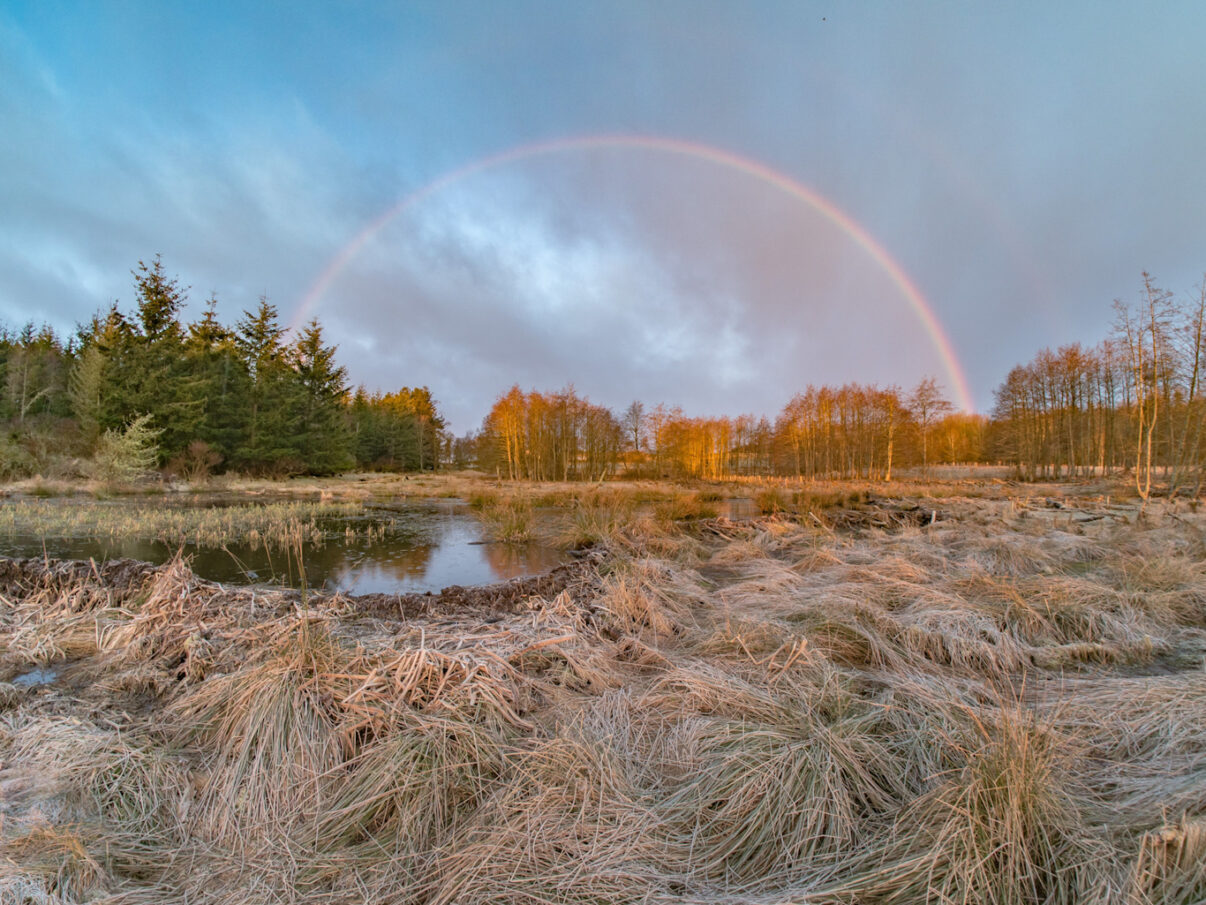
A rewilding journey
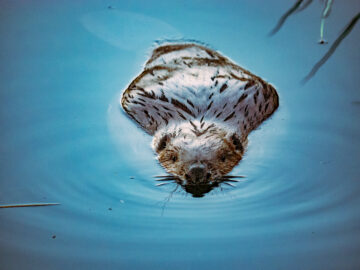
Located on the edge of the Scottish Highlands, Bamff is a small estate in northeast Perthshire, comprising 530 hectares of farmland, woodland, wetland and hills. Having been in the Ramsay family since 1232, it was taken over by Paul and Louise Ramsay in the early 1980s. Work to rewild part of the estate began in the early 90s, with the restoration of wetlands and regeneration of native woodland. This was followed by a move to organic farming and the reintroduction of beavers in 2002.
Most recently, Paul and Louise Ramsay’s daughter Sophie has returned to Bamff and has been heading up the Bamff Wildland initiative, which will see an additional 180 hectares of the estate rewilded. Sheep have already been removed from the fields – after a fallow year this land will be linked to woods and beaver wetlands to form an interconnected rewilding area. Herbivores such as pigs, bovines and ponies will be reintroduced to enhance natural grazing and create conditions where wild nature can further recover and thrive.
Stronger together
Bamff Wildland has just become the European Rewilding Network’s (ERN) latest addition, with membership now totalling 71 members across 27 countries. With many other members involved in the promotion of natural grazing and the rewilding of former agricultural land, the initiative’s inclusion will strengthen the network’s collective expertise and assist the Bamff Wildland team in their rewilding efforts.
“We are delighted to be joining this vibrant, knowledgeable and hugely essential collection of rewilding pioneers,” says Sophie Ramsay. “As the network and the initiatives that are part of it continue to grow, they will surely inspire increasing numbers of people to choose and support rewilding, both in Europe and further afield.”
A pioneering initiative
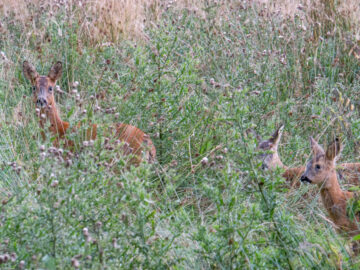
Having engaged with rewilding for nearly 20 years, Bamff can be considered a pioneer in its integration of nature recovery into land management. The estate has shown how a traditional farm can be converted into a sustainable rewilding business that benefits people, nature and climate.
“My father was always fascinated by nature,” says Sophie Ramsay. “There was a growing realisation in our family of the need for rewilding and alternative forms of land management before the movement or the term was even defined.”
Burgeoning support
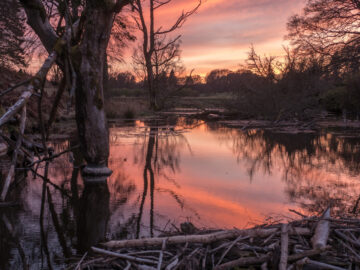
The Bamff Wildland team have recently used crowdfunding to secure the funds necessary to carry out the next stage of their rewilding plan, providing an opportunity for people to engage with an initiative that will benefit nature, climate and the public. Having posted an original crowdfunding target of £24,000 (€28,000), they eventually raised over £40,000 (€46,000) from 461 individual donations. This money will be put towards a range of field actions such as monitoring and the creation of ponds and scrapes.
Bamff Wildland’s crowdfunding success is a great example of how public enthusiasm and support for rewilding is growing and can directly contribute to rewilding initiatives. In Scotland, the rewilding movement has really captured hearts and minds and inspired those with land to make better use of it for nature and people. The Scottish Rewilding Alliance (SRA) has called for the country to become the world’s first “rewilding nation” and commit to bold action on rewilding to address our climate and ecological emergencies.
The people perspective
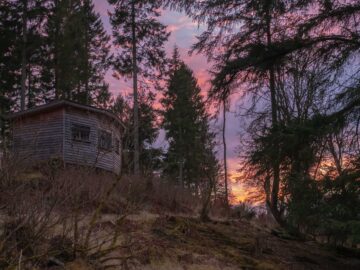
Bamff is also using nature-based tourism as a way of funding rewilding efforts and connecting people with the increasingly diverse nature on the estate. Recovering wildlife includes a variety of deer and bird species, red squirrels, hedgehogs, water voles, pine martens and badgers, as well as the estate’s iconic beavers, which have now created over 50 dams.
Visitors, who are able to stay in a range of estate-based accommodation, can see first-hand how rewilding is leading to the creation of jobs and livelihoods and is not just about the recovery of nature. Nature-based tourism on the estate has already created work for cleaners, administrators, gardeners and local tradespeople.
Bamff House has its own wind turbine that provides electricity, while buildings are heated by a wood chip district heating scheme. Through a combination of renewable energy use and carbon sequestration, the estate is committed to climate change mitigation.
A platform for exchange
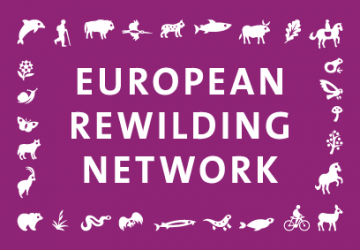 Today rewilding is gaining momentum as a progressive and effective approach to conservation in Europe. Underpinning this trend, the burgeoning European Rewilding Network continues to foster collaboration and amplify results.
Today rewilding is gaining momentum as a progressive and effective approach to conservation in Europe. Underpinning this trend, the burgeoning European Rewilding Network continues to foster collaboration and amplify results.
Founded by Rewilding Europe in 2013, the aim of the ERN is to enhance the efforts of each member by facilitating the exchange of skills, insight and experience. Members meet regularly, usually via webinar, while nature-based businesses can also apply to Rewilding Europe Capital, Rewilding Europe’s enterprise loan facility.
Rewilding Europe extends a warm welcome to all European rewilding initiatives that focus on practical, result-oriented rewilding and encourages them to apply for ERN membership.
